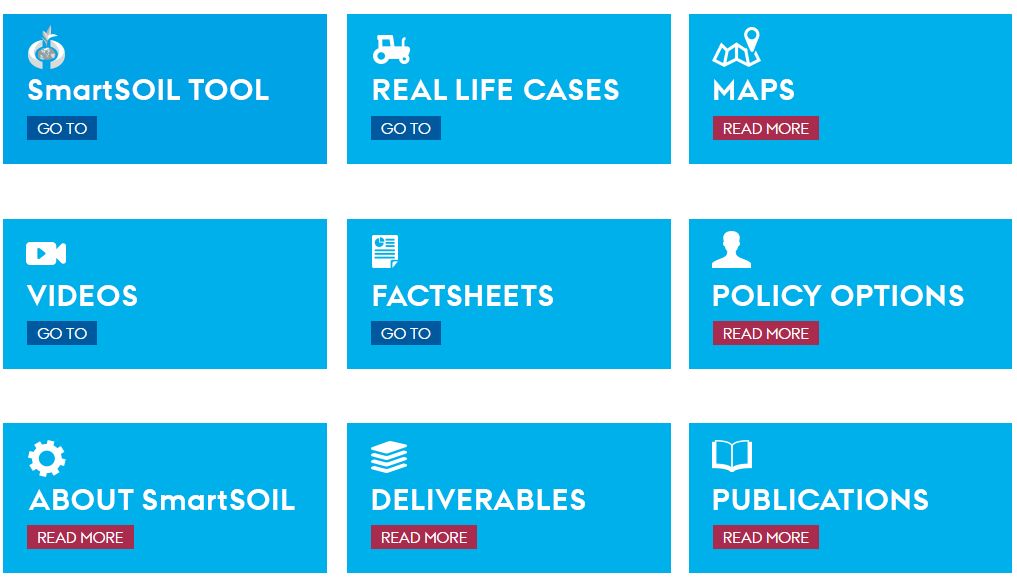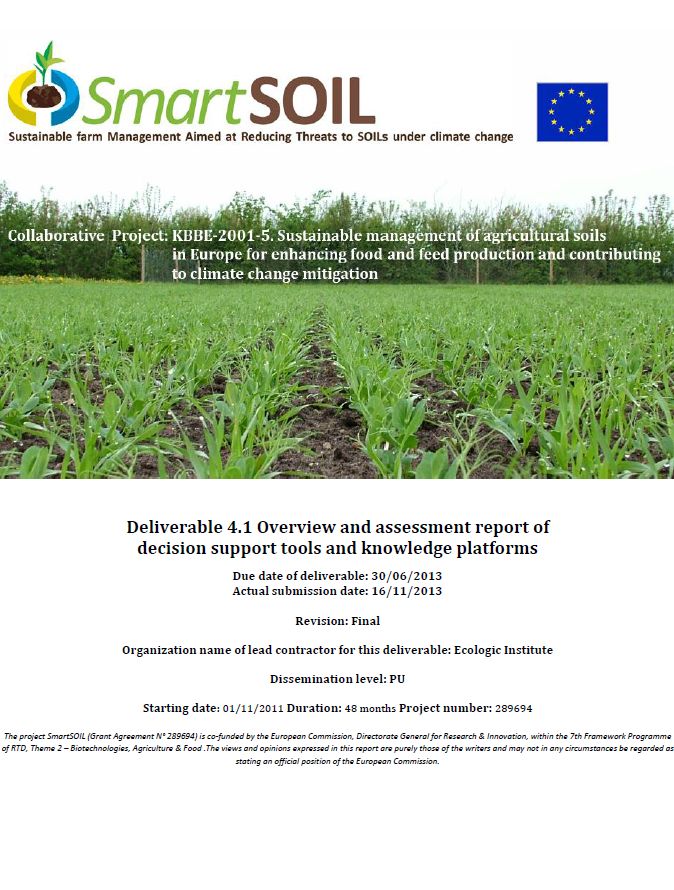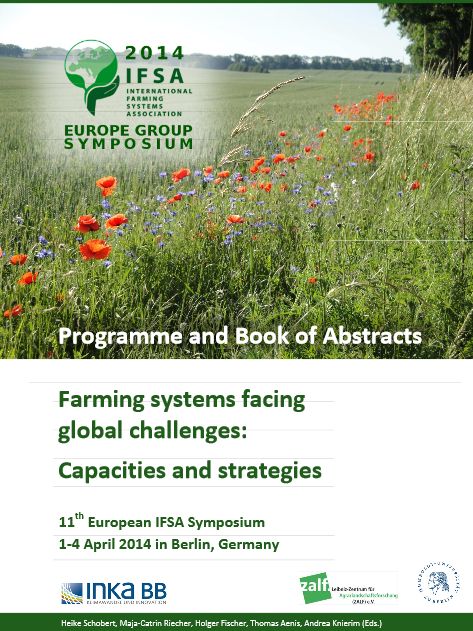Farming practices exert an important influence over soil functions, soil organic matter and carbon stocks, which in turn are essential to regulating greenhouse gas emissions in agriculture. SmartSOIL was an EU-funded project which developed an innovative approach assessing the impact of farm management on soil organic carbon stocks, crop productivity and other ecosystem services. SmartSOIL developed a decision support tool to enable farmers, advisors and policy makers to discuss and select the most appropriate and cost-effective practices for different farming systems, soils and climates - in a smart way.
Background
Soils enable food and feed production and their health is essential for supporting the growing human population. At the same time, soils provide a range of regulating and supporting functions, not least those related to climate change and storage of greenhouse gases. The majority of soil functions (e.g. crop water and nutrient supply, carbon sequestration and nitrate leaching) are closely linked to the flows and stocks of carbon in soils.
The decline in soil health, especially in organic matter content, resulting from intensive agricultural production is a serious threat to the productivity of arable and mixed farming systems in Europe as well as their role in mitigating greenhouse gas emissions. Management practices that optimize crop productivity and soil carbon storage can provide a valuable solution, yet are often not encouraged.
Policy makers need better decision support tools that can assist them in providing incentives for the most cost-effective practices that will support both increased productivity and soil carbon sequestration under current and future conditions. Furthermore, farmers and agricultural advisors require decision support tools that can assist them in preparing appropriate farm specific plans for improved crop and soil management.
Main objectives
The overarching aim of SmartSOIL was to contribute to reversing the current degradation trend of European agricultural soils by improving soil carbon management in arable and mixed farming systems covering intensive to low-input and organic farming systems. This entails the following overall aims:
- To identify farming systems and agronomic practices that result in an optimized balance between crop productivity, restoration and maintenance of vital soil functions (fertility, biodiversity, water, nutrients cycling and other soil ecosystem services) and soil carbon sequestration and storage
- Development and delivery of the SmartSOIL decision support tool and guidelines to support novel approaches, techniques, and technologies adapted to different European soils and categories of beneficiaries (farmers, farm advisory and extension services, and policy makers)
Methodology
The project combined modelling, meta-analyses of data from European long-term experiments (LTEs), as well as new measurements within LTEs. Scenarios of future management systems in Europe for improved productivity and enhanced soil organic carbon (SOC) sequestration were evaluated under current and future climate. The cost-effectiveness of alternative policy measures and options for managing SOC flows and stocks for improved productivity and SOC storage was assessed. SmartSOIL developed a decision support tool (DST) to enable farmers, advisors and policy makers to discuss and select the most appropriate and cost-effective practices for different farming systems, soils and climates. The project engaged key stakeholders in case study regions and the wider EU in the development of the DST, guidelines and policy recommendations, and informed the scientific and user community on progress and results.
Ecologic Institute in SmartSOIL
Ecologic Institute led the task of developing a web-based decision support tool, was responsible for deriving policy recommendations, and strongly supported the involvement of stakeholders via workshops and interviews. Further activities included the organisation of the final policy conference and policy dissemination. Ecologic also helped to demonstrate the cost-effectiveness of alternative soil management options within European farming systems and evaluated the economic and social impacts of management scenarios for increasing soil organic carbon.








